Having been voted the man of the match in three Challenge Cup finals, Marc Sneyd should be considered one of the great half-backs of his generation. But, having now lost as many finals as he has won, and been repeatedly overlooked by England, the 34-year-old is in danger of leaving the game without the silverware his consistent class deserves.
Moments before Hull KR inflicted a last-gasp 8-6 defeat on his Warrington side, Sneyd snared 31 of the 37 votes from Wembley’s press benches. The other six went to his opposite number, Mikey Lewis, who then kicked the winning conversion with less than two minutes left. Sneyd undoubtedly came out on top in the battle of the half-backs, schooling a player a decade his junior.
“Marc Sneyd was just brilliant,” said the crestfallen Warrington coach Sam Burgess. “I knew during the week he was going to be: he turned into a different bloke. He controlled the game.” Winning coach Willie Peters admitted Sneyd was “exceptional”. He emulated Sean Long’s achievement of winning the Lance Todd Trophy three times, but Lewis finally delivered with just seconds left.
For much of the game, it looked like that moment was never going to come. Sneyd kicked Hull KR close to submission, his towering bombs plummeting from leaden skies, pinning the Robins back, his deep kicks forcing drop-outs galore. Rovers were getting nowhere, Warrington’s defence was awesome.
When it was his turn, Lewis tried everything. He kicked bombs, torpedoes and wobblers. He sent grubbers in behind the defensive line, even the occasional lob into no man’s land. Warrington dealt with it all. Sneyd’s only two England appearances came in the 2022 World Cup, after which Shaun Wane replaced him with … Lewis. The assumption was the Oldham veteran’s time had gone. Not a bit of it.
On a miserable day – surely the coldest final since the drudgefest between Wigan and Hull in 2013 – Warrington ground their way towards the hooter while 20,000 Robins urged Lewis to pluck a rabbit from his hat. He stuck to the left side while halfback partner Tyrone May created even less from the right. In contrast, as the tussle went on, George Williams abandoned his right-side station to play a traditional stand-off role, repeatedly looping round either side behind Sneyd, putting doubt in defenders’ minds.
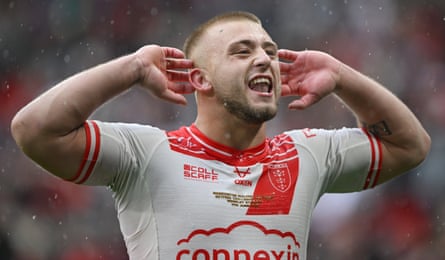
In pouring rain, centres were there to drive the ball out of their half in exit sets, jam in and tackle, chase kicks like their careers depended on it, and only worry about creating if the field opened up. Rodrick Tai and Toby King did it valiantly for Warrington, Rovers utilised Peta Hiku’s size and converted second rower James Batchelor was well cast as bodyguard for Lewis on the Robins’ left.
“We wanted to throw more shape, move the ball a little bit more but the weather hampered that to a degree,” said Batchelor. “We showed in that last 15 minutes when we got a bit of early ball and made some metres, getting us going forward when there wasn’t much happening down the middle.
“It was the same for both teams. It was a grind but that’s how we like to play and see if teams can go through that with us. We said at half-time this could and probably would be a 78th, 79th minute game, and that’s what happened. With about 15 or 20 minutes to go I said: ‘This is where it’s won or lost: we’ve got to dig in.’ I was confident we’d have another chance to win it, and we did.”
While Sneyd was kicking the soul out of Rovers, the Warrington pack were defending their way to the cup. And then it happened: straight after knocking on and then being caught in-goal, Lewis sent the drop-out a gasp-inducing 55 metres and rookie Wolves winger Aaron Lindop could only swat it another 20 metres into touch. Momentum shifted.
Rovers began to believe. With a sparkle missing all afternoon, Hiku flicked a ball on to winger Tom Davies. That led to a penalty. The next set ended with May kicking behind, Hiku diving and missing the ball, Lindop landing on it more like Peter Kay than Tom Daley, and Davies touching down. Cue the first of five extraordinary explosions of noise from the red end of Wembley: try, video ref confirmation, Lewis’ conversion, tackling Warrington into touch and then the hooter.
“We spent 25 minutes on our own line but were only four points down,” said Hiku. “We started believing. With 16 minutes to go we had a set and went through them a bit easily. If we narrowed the errors down I knew we had an opportunity. The last time I looked at the clock there was six minutes to go and I thought: ‘Yep, only four points down, plenty of time.’ We train for these kind of things: five-minute cycles when you’re fatigued and 10 points down, things like that. A lot can happen. We get put in scenarios, the worst situations. That’s why we had the belief.”
Captain Elliot Minchella had talked of the coaches “taking us into very dark places” in training to prepare them. To that end, Peters had Jamie Peacock speak to the team on the eve of the final about enduring discomfort. “I tell the players to put others first because it makes you feel good but in the end you’ve got to do it for yourselves, knowing if you do it will make other people feel great,” said Peters. “East Hull people are tough, gritty. You don’t get anything easy out there, you’ve got to work for it. JP spoke about coping with being uncomfortable, which we were for long periods. You get through to the other side. Nothing beats this.”
Warrington must have felt like the boxer knowing he was winning on points on every judge’s scorecard as he entered the 12th round only to be hit flush on the chin with seconds left of the bout. Lewis rather over-enthusiastically told BBC viewers: “We’re tough as fuck.” Peters was rather more considered: “We got away with it.”
Clubcall: York Knights
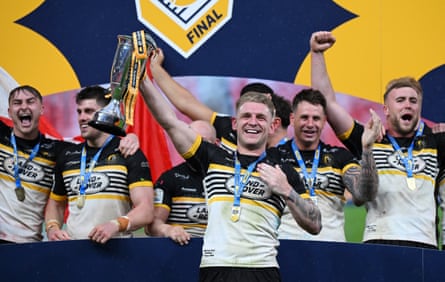
The Challenge Cup finals will be at Wembley on 30 May next year, but don’t be surprised if the 1895 Cup is not. Only about 3,000 of the 63,278 stayed to see York beat Featherstone 5-4 to win the lower league knockout finale. After just two penalties apiece in 80 minutes, skipper Liam Harris hit his second drop-goal attempt perfectly to secure the trophy for upwardly mobile York, to the delight of their few hundred fans.
Having only sold a couple of thousand tickets to the two clubs, the RFL thinks the 1895 would be better as a curtain-raiser but the BBC wants to air the Women’s Challenge Cup final before the men’s event. The sight of Featherstone’s kickers warming up into an in-goal area full of celebrating Hull KR players was not good. Returning to a stand-alone final at Blackpool or a small Super League ground might be wise.
Foreign quota
Almost two hours after the hooter, the Rovers players left the dressing rooms in smart blue suits, Batchelor clutching a pizza and Minchella the cup itself, most with their medals hanging round their necks. All their half dozen overseas players, including Hiku, were soaking up their first Wembley experience. It was a tough day for Warrington’s Australian prop Luke Yates, who lost his third final by an aggregate of just five points. Poor lad.
Incidentally, all 10 scores in Saturday’s showpiece – the lowest-scoring Challenge Cup final since 1970 – and the try-less 1895 Cup that followed, were by Englishmen. While Warrington star Paul Vaughan ended on the losing side again, his former Italy pack-mate Brenden Santi was one of five imports lifting silverware for York.
Goal-line drop-out
The Warrington utility back Oli Leyland hobbled down the tunnel 10 minutes before half-time. Unfortunately, he hadn’t been on the pitch but was wearing a hoodie, his knee strapped up. The prospect of the Leyland brothers, Oli and Bill, facing each other at Wembley vanished when Oli suffered the same fate as Bill last year, tearing his ACL, his season over just as Bill’s took off. Michael McIlhorum’s surprise return as Rovers starting hooker meant neither Leyland brother ended up playing. At least Bill got to wear his kit and collect a medal, albeit looking suitably conflicted. Their time may come again.
Fifth and Last
Also watching on from the stands was cup-tied Arthur Mourgue, who has been in terrific form at full-back since his early season move to Hull KR from calamitous Catalans. “I’d been at the Dragons for eight years and always had the same coach,” said the French international. “I wanted to learn and see new things, be involved with new teammates in a new culture. I wanted to be out of my comfort zone and challenge myself. It’s the excitement of the new for me. I feel like I’m back. The standards are really high. It’s a special club.”
Follow No Helmets Required on Facebook

 3 hours ago
2
3 hours ago
2

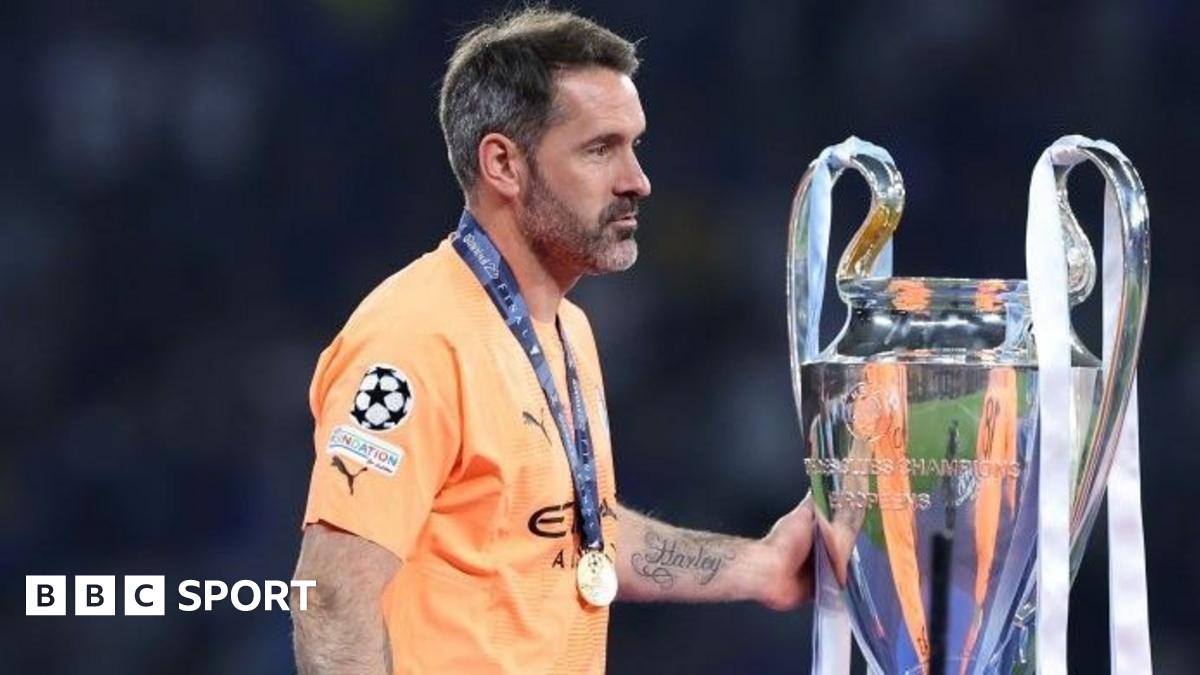
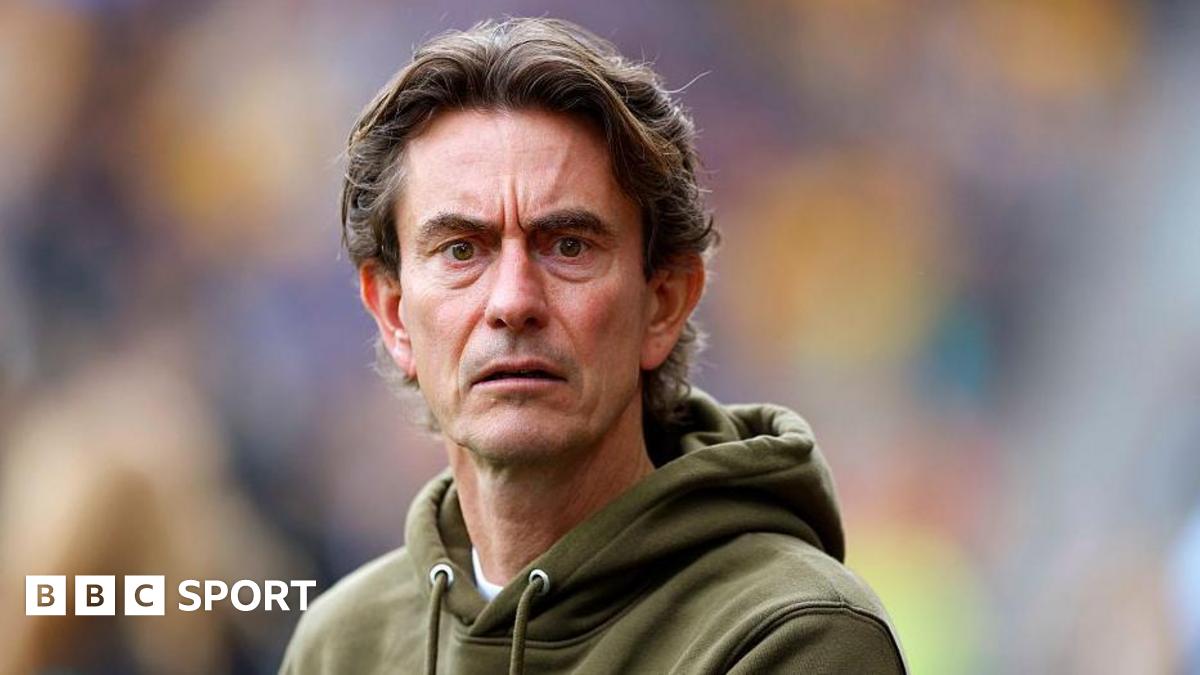
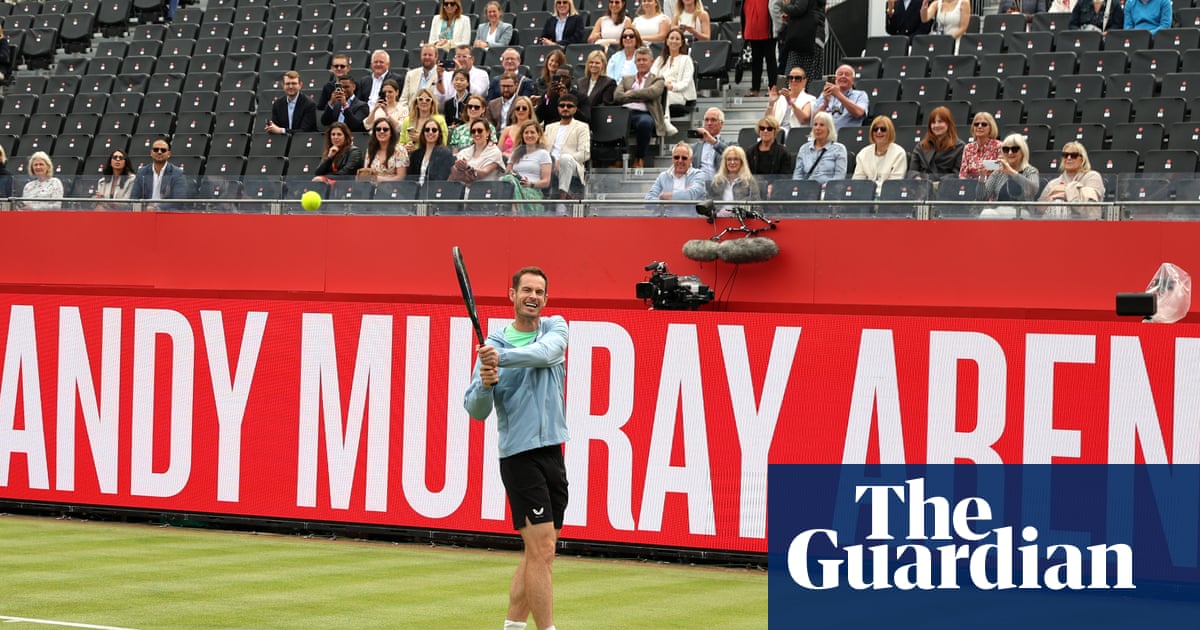


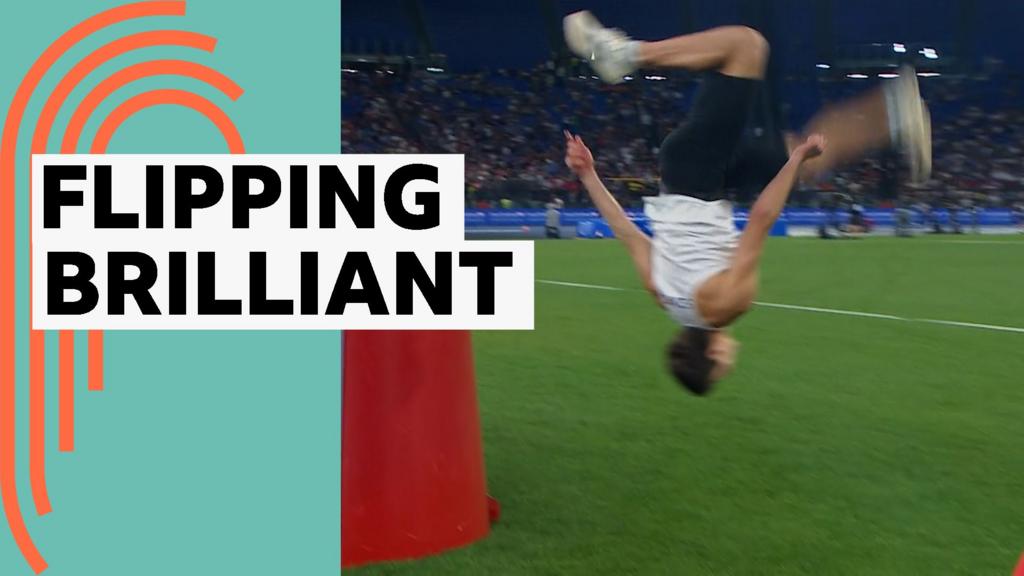
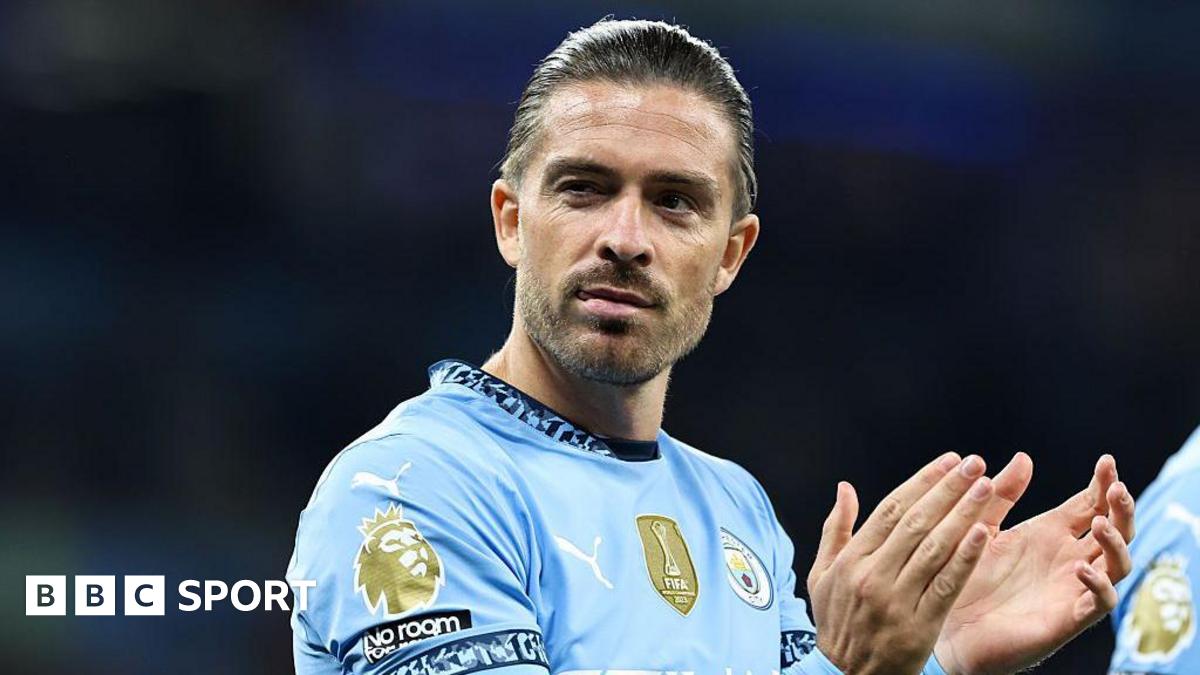
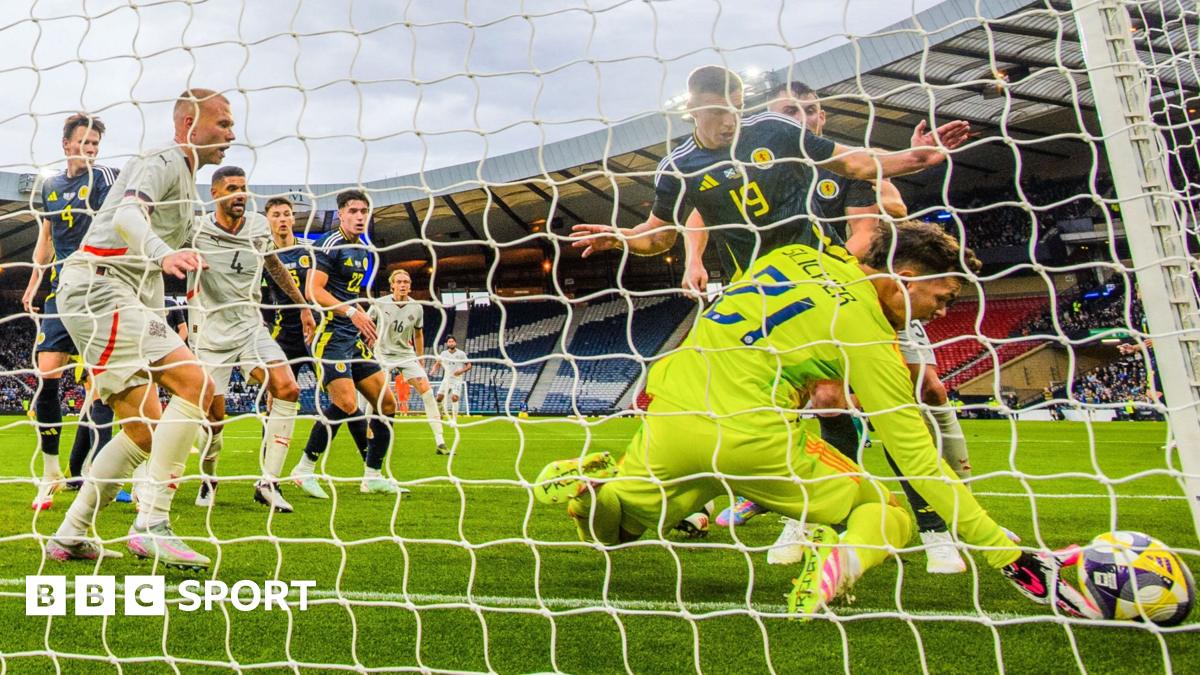
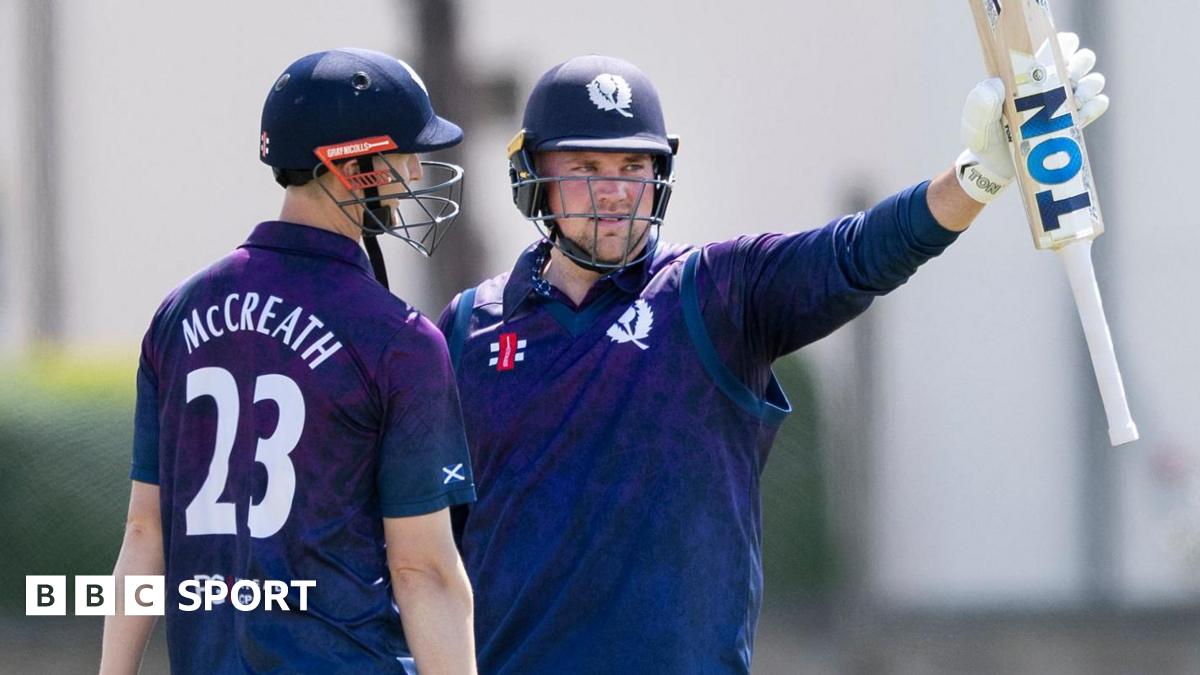
 English (US)
English (US)